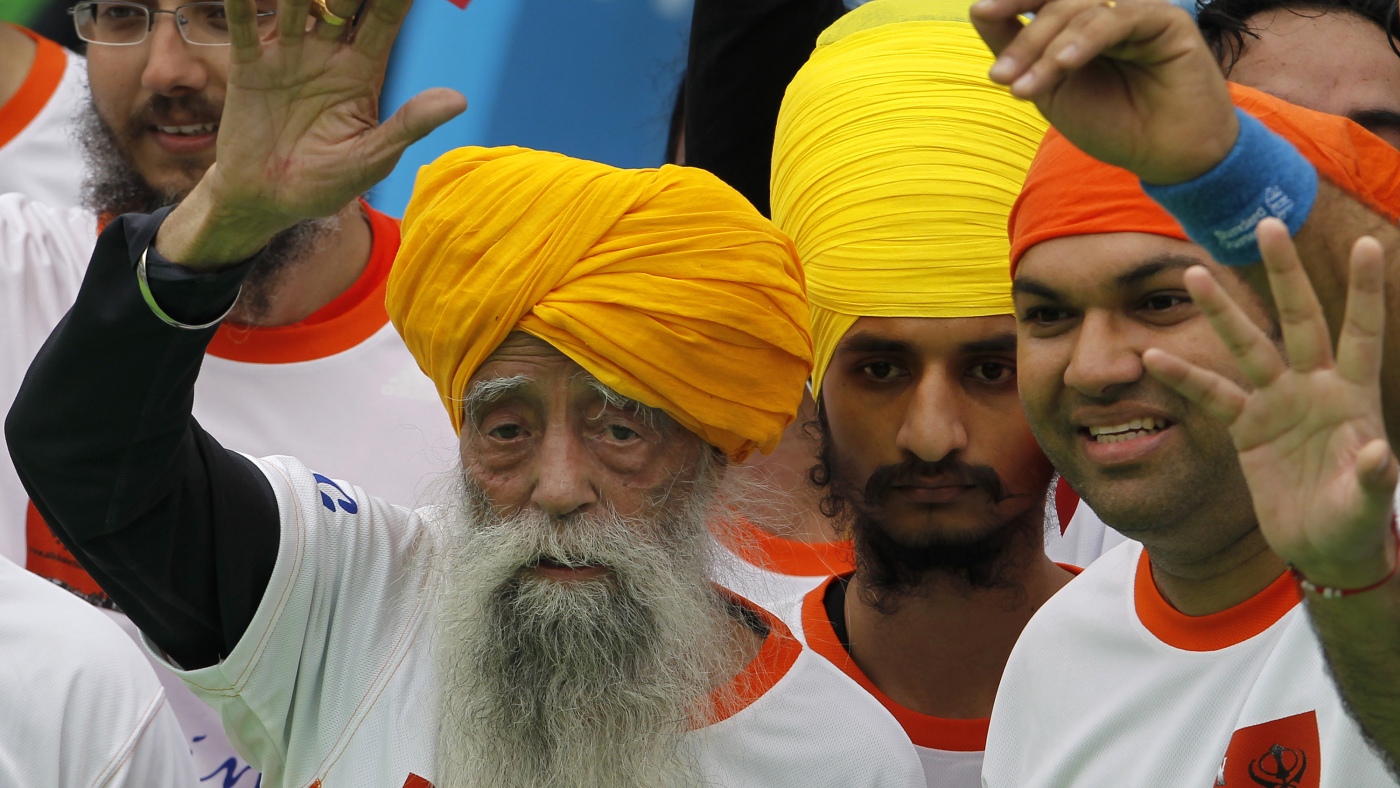Fauja Singh, the renowned marathon runner who inspired many as a centenarian, tragically died on July 14, 2025, after being struck by an SUV while checking on his rice fields in Punjab, India. Singh, who was celebrated for his remarkable achievements in long-distance running, was 114 years old at the time of his death, which has sparked widespread media coverage and renewed discussions about road safety in India.
Harmandar Singh, the running coach who trained Fauja, first met him in London in 1999 when Fauja was 89 years old. Initially appearing in a three-piece suit for their training sessions, he quickly became a dedicated athlete. Harmandar recalls encouraging him to adapt to running, saying, “When there were several miles left, I used to tell him they were kilometers.” This strategy proved effective, leading Fauja to complete nine full marathons worldwide, including a personal best of five hours and forty minutes at the 2003 Toronto Waterfront Marathon.
Despite his remarkable accomplishments, Fauja never officially recorded his age in the record books due to a lack of a birth certificate, a common issue for many born in British-ruled India. Nevertheless, he became a beloved figure, featured in Adidas’ “Impossible is nothing” campaign, and the subject of books and documentaries celebrating his extraordinary life.
After retiring from marathons in 2013, Fauja returned to India around 2022, where he continued to inspire local communities. On the day of his death, he was visiting fields, a routine activity for him. The accident occurred on a busy highway when he was hit by an SUV driven by a 26-year-old man, Amrit Singh Dhillon, who later attempted to evade capture. Local media reported that police arrested Dhillon shortly after the incident, emphasizing the need for more stringent measures to prevent such tragedies.
In the wake of Fauja’s death, India’s Prime Minister expressed his condolences, and plans were announced for a Fauja Singh Clubhouse to honor his legacy. The incident has also drawn attention to the alarming rate of traffic accidents in India, which claim over 150,000 lives annually. Nitin Gadkari, India’s highway minister, acknowledged the rising death toll in Parliament, highlighting the urgent need for improved road safety measures.
Road safety experts have pointed out that many roads in India, especially those constructed in recent years, lack adequate pedestrian infrastructure, warning signs, and crossings. Rohit Baluja, director of the Indian Institute of Road Traffic Education, noted that about 30-33% of accidents result from failures in road and traffic engineering. He emphasized the need for authorities to take responsibility for creating safer environments for all road users.
Fauja Singh’s life was a testament to resilience and passion. He remained active and engaged until his final days, enjoying simple pleasures like eating mangoes from his backyard and teaching his granddaughter, Japneet, about fitness. Her memories of him include lessons on warm-up exercises, showcasing his enduring spirit and commitment to health.
Khushwant Singh, Fauja’s biographer, remarked on the untimely nature of his death, stating that Fauja had expressed no fear of dying, as he felt he was truly living his life. His legacy, however, will extend far beyond his running achievements and will serve as a poignant reminder of the urgent need for safer roads in India.
